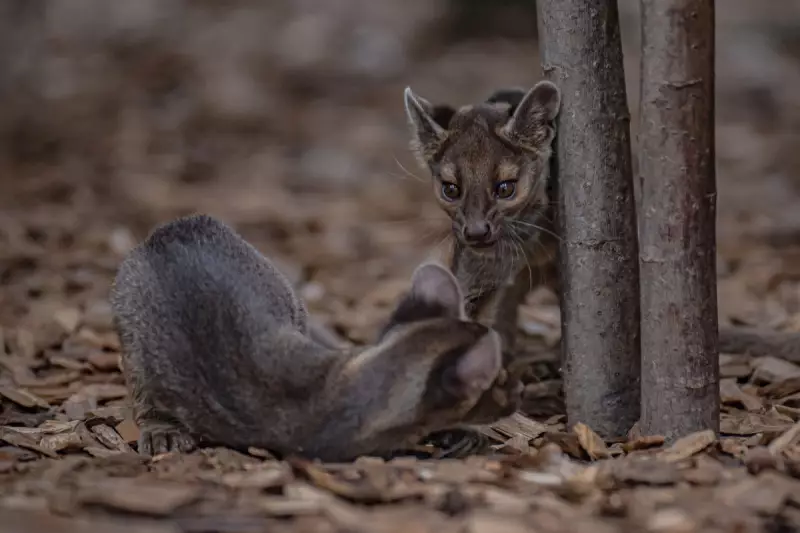
In an extraordinary boost for global conservation efforts, Chester Zoo is celebrating the arrival of three incredibly rare fossa pups - a landmark moment for one of the world's most endangered carnivores.
The tiny triplets, born to first-time parents Shala and Isalo, represent a significant victory for the zoo's specialist breeding programme dedicated to protecting Madagascar's unique wildlife.
Madagascar's Mysterious Predator
The fossa remains one of nature's most enigmatic creatures - a cat-like carnivore that's actually Madagascar's largest native predator. These remarkable animals play a crucial role in maintaining the ecological balance of their forest habitats, yet face an uncertain future in the wild.
Mike Jordan, Animals and Plants Director at Chester Zoo, expressed his excitement: "These births are particularly special as fossas are incredibly rare, both in zoos and in the wild. With perhaps only 2,600 remaining in their natural habitat, every new arrival is vital to the future of this species."
A Conservation Triumph
The successful breeding represents years of dedicated work by the zoo's expert team. The newborn pups, whose genders remain unknown as they bond closely with their mother in a private nesting area, are developing perfectly under the watchful eyes of conservationists.
Chester Zoo has become a global leader in fossa conservation, with these latest arrivals marking the seventh, eighth and ninth pups born at the facility since 2016. Each birth contributes valuable knowledge to safeguarding the species from extinction.
Why Fossas Matter
- Madagascar's apex predator, crucial for ecosystem balance
- Population declined by 30% over past 30 years
- Faces habitat loss from deforestation and human expansion
- Protected by international conservation efforts
The zoo's conservation team works closely with Madagascan partners, supporting habitat protection and community education programmes to ensure fossas can thrive both in captivity and in their natural home.
Visitors to Chester Zoo can look forward to seeing the new fossa family emerge from their den in the coming weeks, offering a rare glimpse of one of nature's most fascinating - and threatened - predators.





